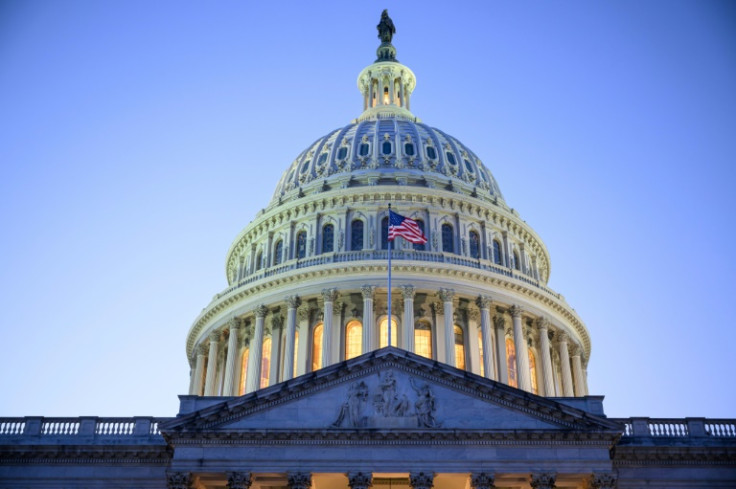
The US Congress heads out on a two-week break this weekend with no clear plan to provide desperately needed military aid requested by the White House to help pro-Western Ukraine in its fight against Russian invasion.
President Volodymyr Zelensky has warned that his country is in dire need of support to replenish dwindling ammunition stocks, and has voiced hope the United States will approve a $95 billion package stalled on Capitol Hill.
But Mike Johnson, an ally of Donald Trump who leads a razor-thin Republican majority in the House of Representatives, has resisted pressure to allow a vote on the legislation, which would also provide support for Israel and Taiwan.
Johnson signaled Wednesday that he wasn't shutting the door on more funding on top of $110 billion already approved for Kyiv, promising to return to the issue "immediately" after lawmakers complete the much-delayed 2024 federal budget.
"There's a number of avenues that we're looking at... We have to project strength in the world stage and we're going to do that," he told reporters.
But Congress is scheduled to be in recess after the weekend until April 8, and action in both chambers for the remainder of this week will be dominated by the government funding talks.
"The longer that the national security supplemental sits on Speaker Johnson's desk, the more desperate the situation in Ukraine becomes," Chuck Schumer, the leader of the Senate's Democratic majority, said on Wednesday.
He warned that Ukraine was facing a shortage not just of ammunition but also of troops, and stated that the House would give the package strong support if Johnson allowed a vote there.
"Russia is now making three times -- three times -- as much artillery and munitions as the US and Europe, and Ukrainian forces are suffering the consequences on the ground," he said.
Ukraine denuclearized in the 1990s after the break-up of the Soviet Union, gaining assurances from the West over its security.
US lawmakers were overwhelmingly in favor of arming the US ally when Russia launched its full-scale invasion in February 2022.
The Senate sent the House its $95 billion aid package, backed by nearly half of Republicans, more than a month ago, but the party's House members have soured on Ukraine in recent months.
Republican defense hawks have been locking horns with isolationist Trump followers who say Americans should be more concerned with domestic issues such as mounting national debt than getting involved in foreign conflicts.
And Trump himself, who won the Republican nomination to challenge Biden in November's election, has been pressuring his party to deny further Ukraine funding until they have addressed his own top campaign issue -- a surge in illegal immigration.
High-stakes talks between the president and congressional leaders at the White House in February ended without a deal, with Johnson insisting on the need for more border reforms first.
Most of the $60 billion in proposed aid is actually cash that would get pumped back into the US economy to replace old weapons shipped to Ukraine, supporting American jobs and industry. But $12 billion would be money paid directly to Kyiv.
Some Republicans are floating the idea of having Ukraine borrow money at zero or low interest, after Trump championed converting all foreign aid into loans, and Johnson is reportedly open to the option.
Johnson referred in his press conference to the possibility of using the seized assets of Russian oligarchs to pay for Ukraine aid.
It isn't clear whether Democrats would support either move and Senate Minority Leader Mitch McConnell, the most powerful pro-Ukraine voice in the Republican Party, dismissed the loan idea last week, saying it would lead to more delays.







